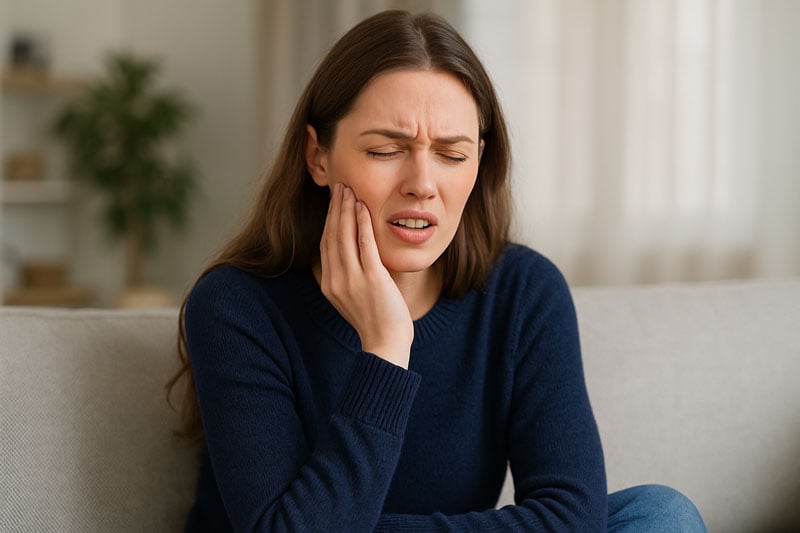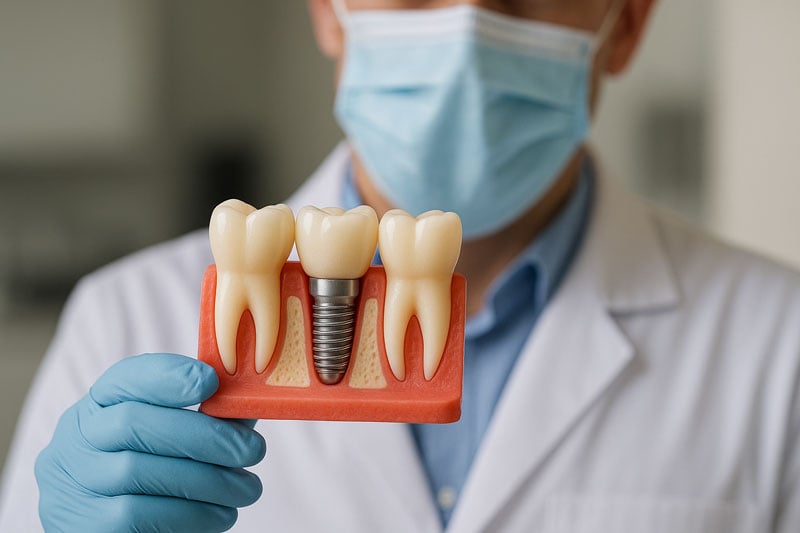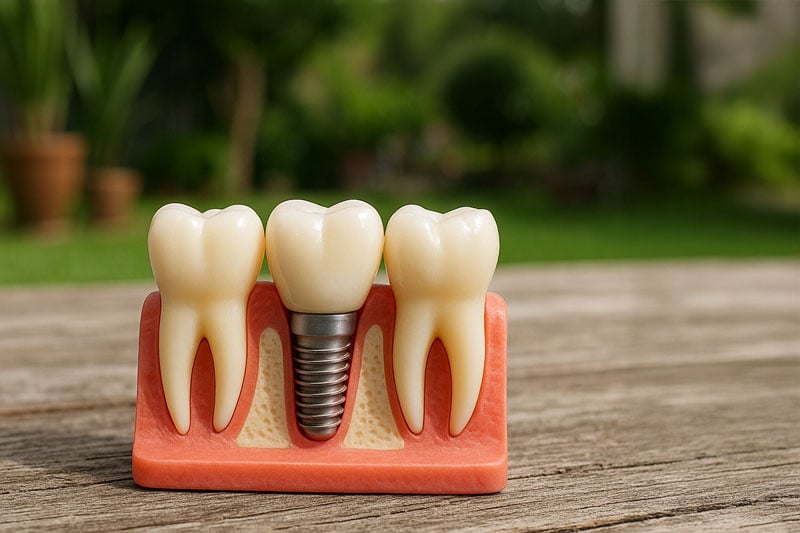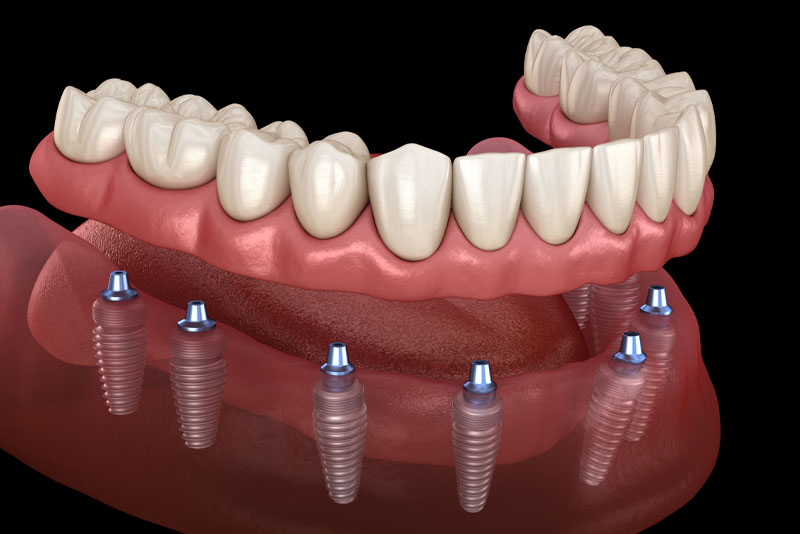Dental Blog - Las Vegas & Henderson, NV
Dental Blog

Sleep Apnea
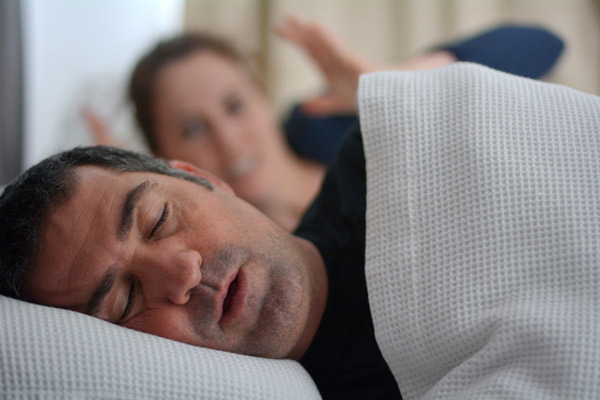
Sleep apnea is now being discussed more often and increasingly people are realizing they suffer from it. In fact, it is the most common sleep disorder in the US. Estimates predict that 22 million Americans suffer from sleep apnea, though only about 20% of cases are diagnosed. Patients who suffer from sleep apnea can be experiencing problems with focus, concentration, their mood, and most seriously, they can be escalating a potentially life-threatening disorder.
At Nevada Oral & Facial Surgery, we can diagnose the problem, and provide you the information and tools you need to help. Most patients think that they will be required to sleep with a mask and CPAP, but there are multiple solutions and we can help you find the right solution for you. As an oral and maxillofacial surgical practice, we can discuss varying oral appliances, or provide the surgical intervention needed to help you breathe better while you sleep.
What Is Sleep Apnea?
Though there are three main types of sleep apnea, the most common is due to Obstructive Sleep Apnea.
| • | Obstructive Sleep Apnea: The term apnea is a Greek word that literally means without breath. While upright and awake, most people do not experience a loss of breath, but when they lay down and the muscles and tissue in their throat relaxes, their airway can be constricted as the tissue collapses. Obstructive sleep apnea is characterized through repeated stopping of breath or oxygen intake. For some patients this may be once or twice, for others it may be occurring hundreds of times every time they sleep. The result is a patient having a continuously disturbed sleep, not getting the rest they need, and over the long term, damage to their heart. |
Other forms of sleep apnea include:
| • | Central Sleep Apnea: This occurs when the patient has a disconnect between their brain and the muscles that tell them to breathe. The brain is not signalling the cessation of breathing to occur. This may be due to a number of medical problems. |
| • | Mixed Sleep Apnea: This is a combination of Obstructive Sleep Apnea and Central Sleep Apnea. The patient may have excessive tissue and suffer from a medical condition that is causing a loss of connection between their brain and muscles. |
Diagnosis Of Sleep Apnea
Diagnosing sleep apnea begins with a consultation, will discuss symptoms you’re experiencing and determine the severity of your disorder. Surgical intervention is typically the last line of defense after other treatment options have been exhausted. We can discuss non-surgical treatments as well as surgical. Non-surgical treatments besides the CPAP can include varying oral appliances designed to hold your tongue forward and open your airway.
Surgical Options For Sleep Apnea
Besides appliances, there are multiple surgical options designed to address the symptoms and help you breathe better. Some of these options include:
| • | Nasal surgery: Nasal surgery addresses nasal obstruction or congestion. We can help you breathe better by creating more room in the nose. |
| • | UPPP Surgery: Uvulopalatopharyngoplasty (UPPP) is one of the most common sleep apnea surgeries. Though it has a complicated name, it is a simple process of removing excess tissue from the pharynx and soft palate. |
| • | Tongue advancement: Tongue advancement surgery is done to keep the tongue from falling backward into the throat during sleep. This can be a common reason for sleep apnea in patients. |
| • | Lower jaw advancement: Bringing out the lower jaw, and correcting alignment, can be helpful to better breathing. This surgery helps us move the lower jaw forward and enlarge the entire upper airway |
| • | Hyoid advancement: The hyoid bone is a small bone in the neck. This surgery is done to expand the airway by advancing that bone and preventing collapse. |
| • | Soft palate implants: Sometimes referred to as the Pillar Procedure, this surgery involves the placement of three polyester rods into the soft palate to stiffen the area. This will prevent contact with the pharynx and help the patient breathe better while they sleep. |
| • | Tracheostomy: A tracheostomy is the most extreme of the surgeries listed. It allows us to create an additional passageway for air to get to the lungs directly from the trachea. |
Schedule An Appointment
If other treatments have failed to alleviate your sleep apnea symptoms, you may need surgical intervention. Call (702) 360-8918 to schedule your consultation appointment today![/vc_column_text][/vc_column][vc_column width=”1/3″][vc_single_image image=”907″ img_size=”full” alignment=”center” el_class=”img_col”][/vc_column][/vc_row]

